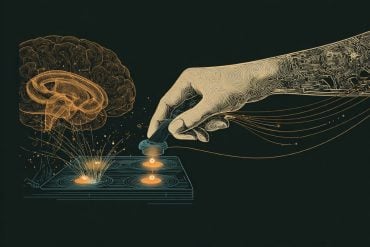Summary: Elon Musk’s Neuralink has successfully implanted its brain-computer interface in a human. The procedure marks a significant milestone for the company.
The clinical trial aims to enable individuals with paralysis to control devices through their thoughts.
Key Facts:
- First Human Implant: Neuralink achieved a major breakthrough by successfully implanting its brain-computer interface in a human patient.
- Targeted Participants: The clinical trial focuses on patients with quadriplegia and amyotrophic lateral sclerosis (ALS) aged 22 and above, offering hope for those with severe movement impairments.
- Wireless Brain-Computer Interface: Neuralink’s technology aims to empower individuals to control devices using their thoughts, potentially revolutionizing the lives of people with paralysis.
Source: Neuroscience News
Elon Musk announced on X this afternoon that the first human has received a brain implant from his Neuralink company. The procedure is believed to have taken place on Sunday.
Musk added in his post that the initial results show promising neural spike detection.

Last year, the FDA provided clearance for the company to embark on human testing for its neural-chip technology.
In September 2023, Neuralink announced it was opening recruitment for its first human clinical trials of its implant. Patients with quadriplegia and amyotrophic lateral sclerosis (ALS) over the age of 22 are eligible to participate in the ongoing trials.
The trial is being overseen by an independent institutional review board.
The goal of the study is to assess the functionality of its wireless brain-computer interface for those with movement impairments or paralysis of all four limbs to control devices with their thoughts.
Neuralink reports on its website that the trial is still open for registration.
About this neurotech research news
Author: Neuroscience News Communications
Source: Neuroscience News
Contact: Neuroscience News Communications – Neuroscience News
Image: The image is credited to Neuroscience News







